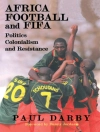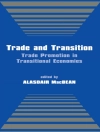This book explores various issues and challenges emanating from the COVID-19 pandemic. It examines how governments worldwide have dealt with the pandemic. Post-COVID-19 and its disruptive impact on social and economic life as well as public and political attitudes, the world is not the same. A new normal has dawned in public management and public services, with immense implications. This volume collects the lessons drawn from the pandemic, notably how crisis leadership and public governance were used to combat the crisis, as well as which aspects were helpful in that regard.
This book covers a total of 17 countries and regions, namely: Japan, South Korea, Singapore, China (Mainland), Hong Kong, Taiwan, Australia, New Zealand, Italy, The Netherlands, the Nordic Countries (Denmark, Norway, Sweden, Finland and Iceland), the UK and US. Special attention is drawn to China (Mainland) in particular, where the pandemic first broke out. Its subsequent efforts in suppressing the epidemic have been quite stunning. The range enables good international comparisons to be made in crisis leadership, response strategies and effectiveness across continents, systems, and cultures (East Asia, Oceania, Europe and North America). While the pandemic is still ongoing by the time the book is finalized, the experience gained over more than two years has provided good ground for lesson drawing.
Contents:
- Introduction: The World is Not the Same After COVID-19 (Anthony B L Cheung and Sandra van Thiel)
- China (Mainland): Strong Crisis Leadership and Dynamic Zero Clearing Strategy — Challenges and Pitfalls (Liang Ma)
- The Hong Kong Experience: Controlling the Pandemic Amid a Political Crisis (Anthony B L Cheung and Alex Jingwei He)
- Japan Attempting to Control the Pandemic: Framework and Policymaking Assessments from Governance and Leadership Perspectives (Akira Nakamura, Tomoki Iizuka and Tatsuya Nogami)
- South Korean Experience of Fighting against COVID-19: Institutional Infrastructure, Policy Responses and Collaborative Governance (Pan Suk Kim)
- Singapore and COVID-19: From Containment to Building Pandemic Resilience (J J Woo and Xun Wu)
- Crisis Leadership and Response Mode During Different Stages of COVID-19: The Case of Taiwan (Chun-Chieh Ma)
- The Politics and Policy of COVID-19 in Australia and New Zealand (Alan Fenna and Shaun Goldfinch)
- The Italian Policy Response to COVID-19: Did Political Leadership Matter? (Giliberto Capano and Anna Malandrino)
- A Contested 'Intelligent’ Approach: Crisis Management and Societal Response to the COVID-19 Pandemic in the Netherlands (Kees Boersma, Yiannis Kyratsis and Jeroen Wolbers)
- Crisis Management of the COVID-19 Pandemic: The Nordic Way and Swedish Exceptionalism (Tom Christensen and Per Lægreid)
- The Sick Man of Europe: The United Kingdom’s COVID-19 Response (Charlotte Boin, Martin Lodge and Henry Shields)
- Leadership and Crisis Management in COVID-19: The US Experience through January 2021 (Zachary Cox, Paolo Cavaliere and James Kendra)
- Conclusions: Lessons from an Ongoing Crisis (Sandra van Thiel and Anthony B L Cheung)
Readership: University and college libraries; academics, graduate students and post-doctoral researchers in the fields of governance, public administration, government and politics, public management, public policy and crisis management; public sector managers (especial those who have a role to play in crisis management and anti-epidemic work); Masters students in Public Administration, Public Policy and Public Management and even MBA programmes; those who are generally interested in understanding government work and performance, including politicians, political party researchers, think tank analysts and media journalists.
Key Features:
- With 12 different country/region chapters, the book presents a fairly representative picture of crisis response in (essentially) developed economies across East Asia, the Oceania, Europe and North America
- Among various issues and challenges posed by COVID-19, it focuses on crisis leadership and public governance, to provide relevant lessons to governments and leaders
- While it avoids jumping to any quick appraisal and ranking of international COVID-19 performance, some meaningful international comparisons are made which relate to crisis response strategies and effectiveness in leadership, governance capacities, institutional characteristics and even cultural legacies
- In addition, all chapter contributors are those highly conversant with their national/regional systems and pandemic situations
- The two co-editors are experienced public administration and management scholars, one from Asia and the other from Europe, both with broad international outlook and networks, who have been able to bring about a strong writing team for this book












